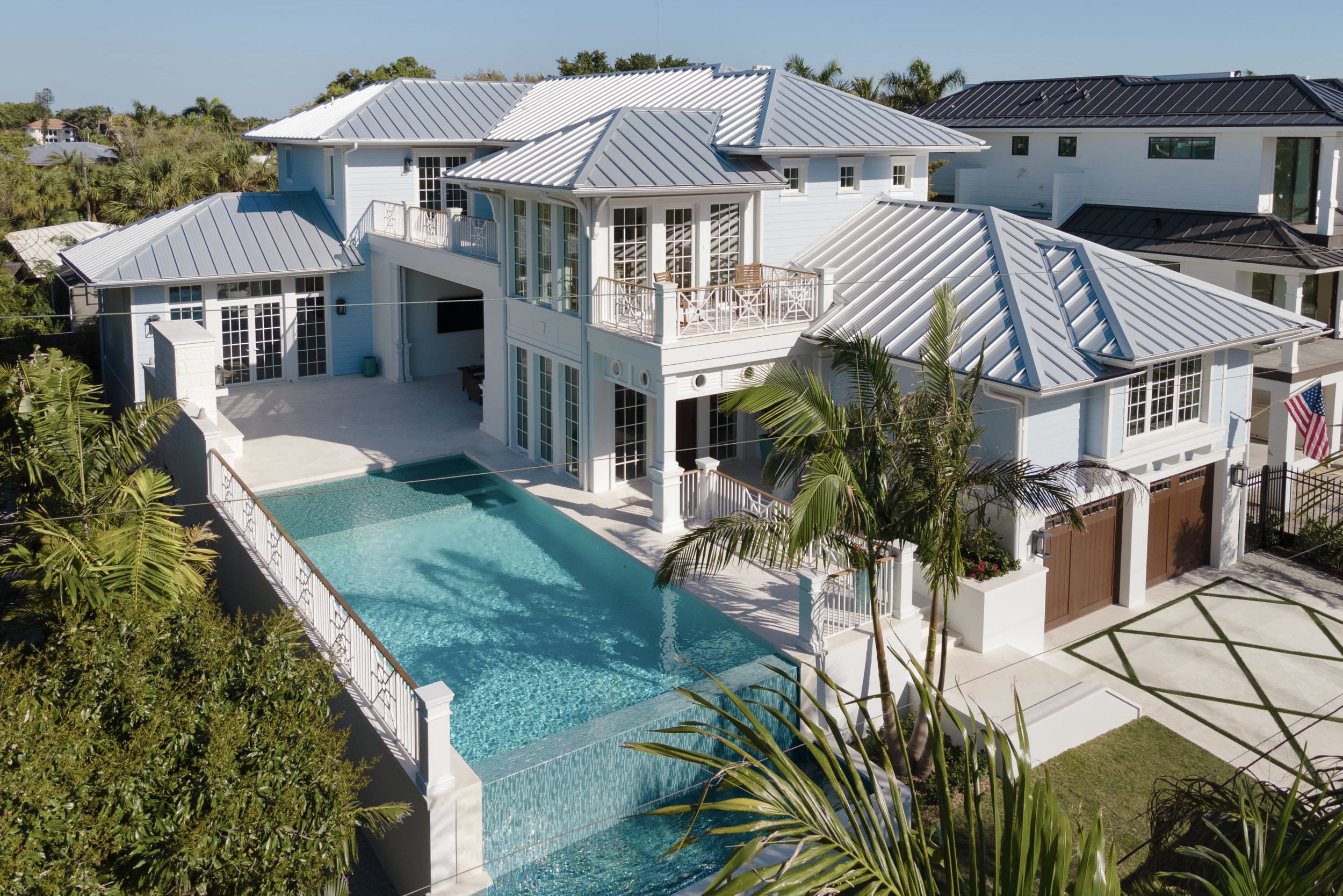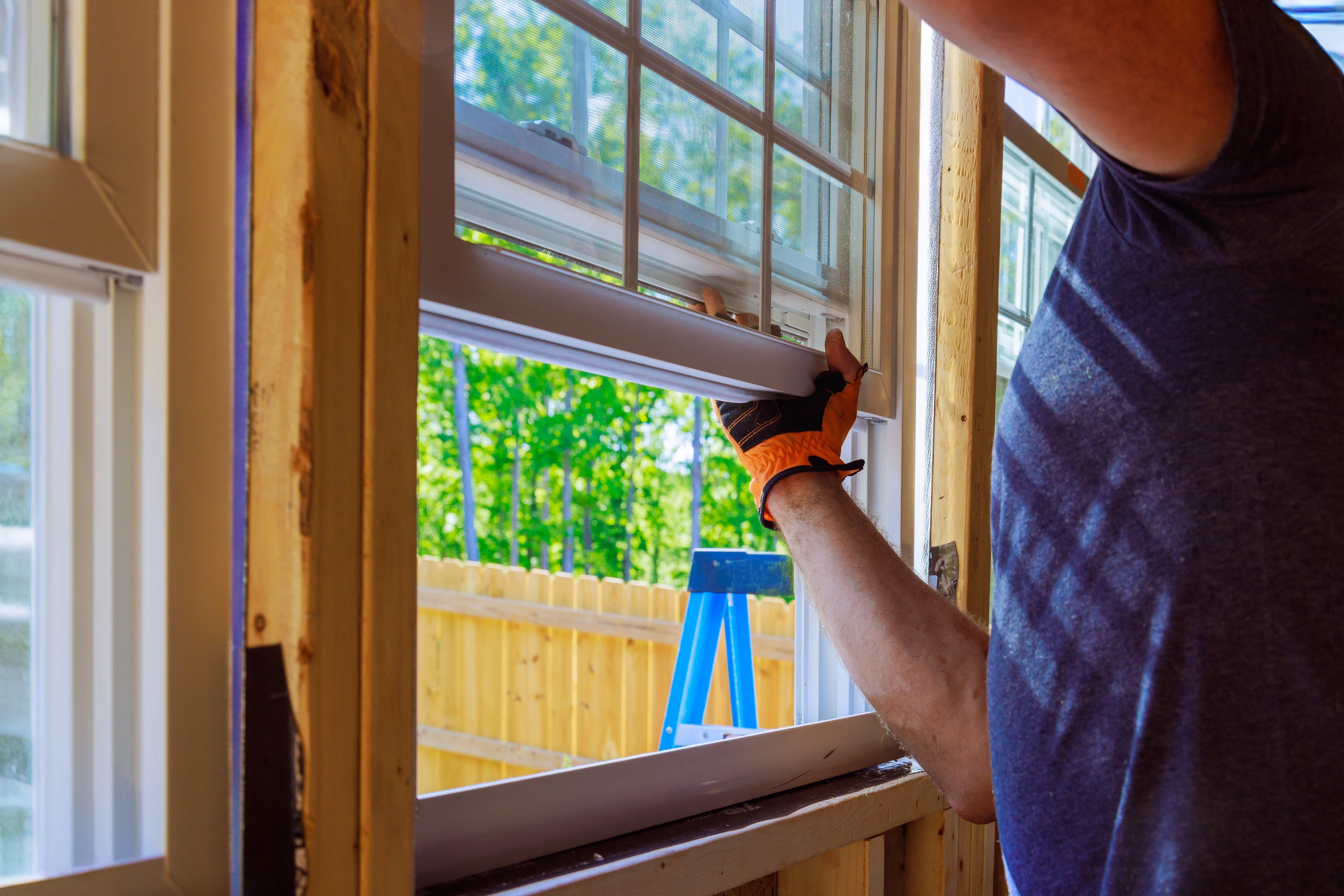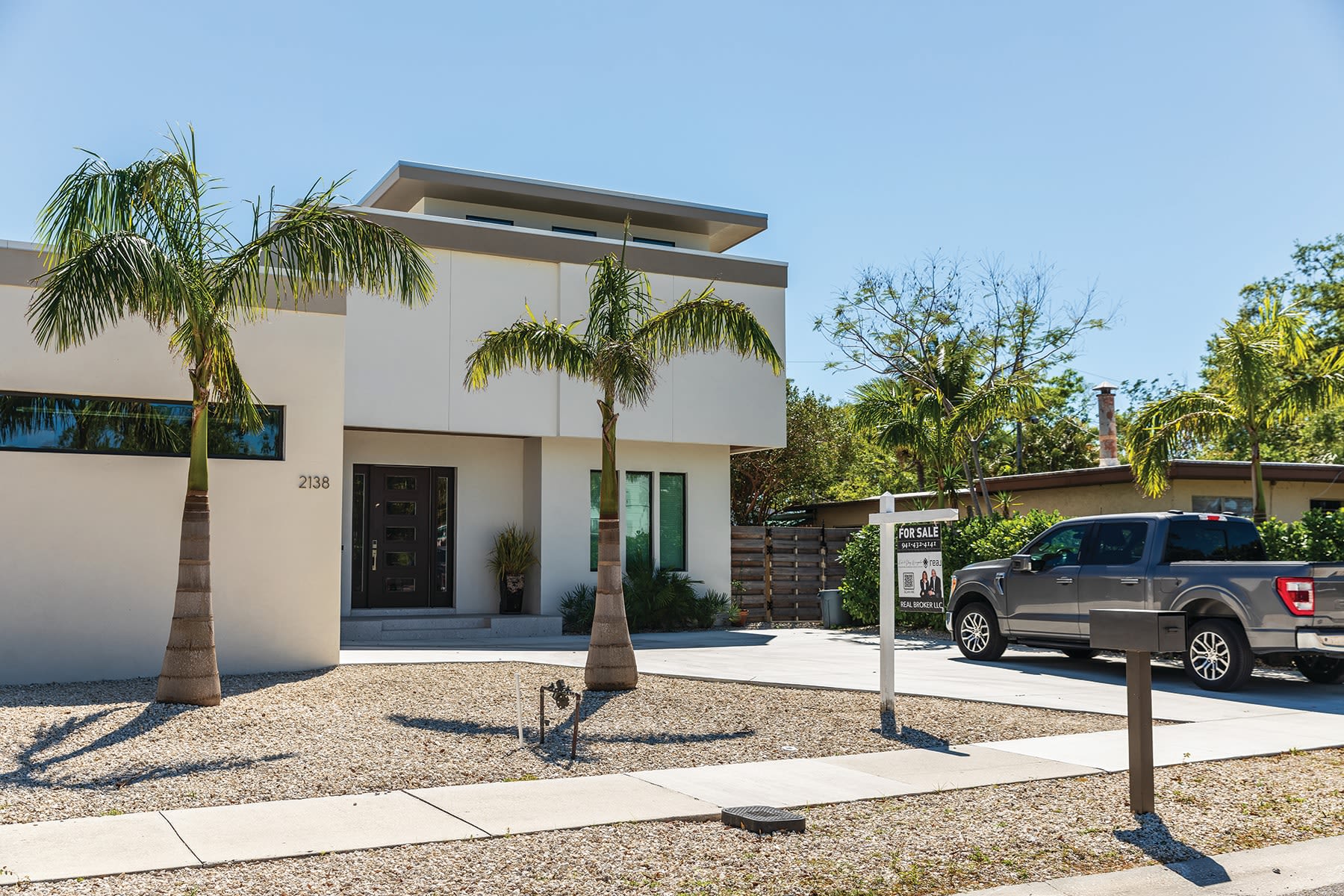Deb Knowles and Larry Kabinoff's GulfStar Homes Takes Off
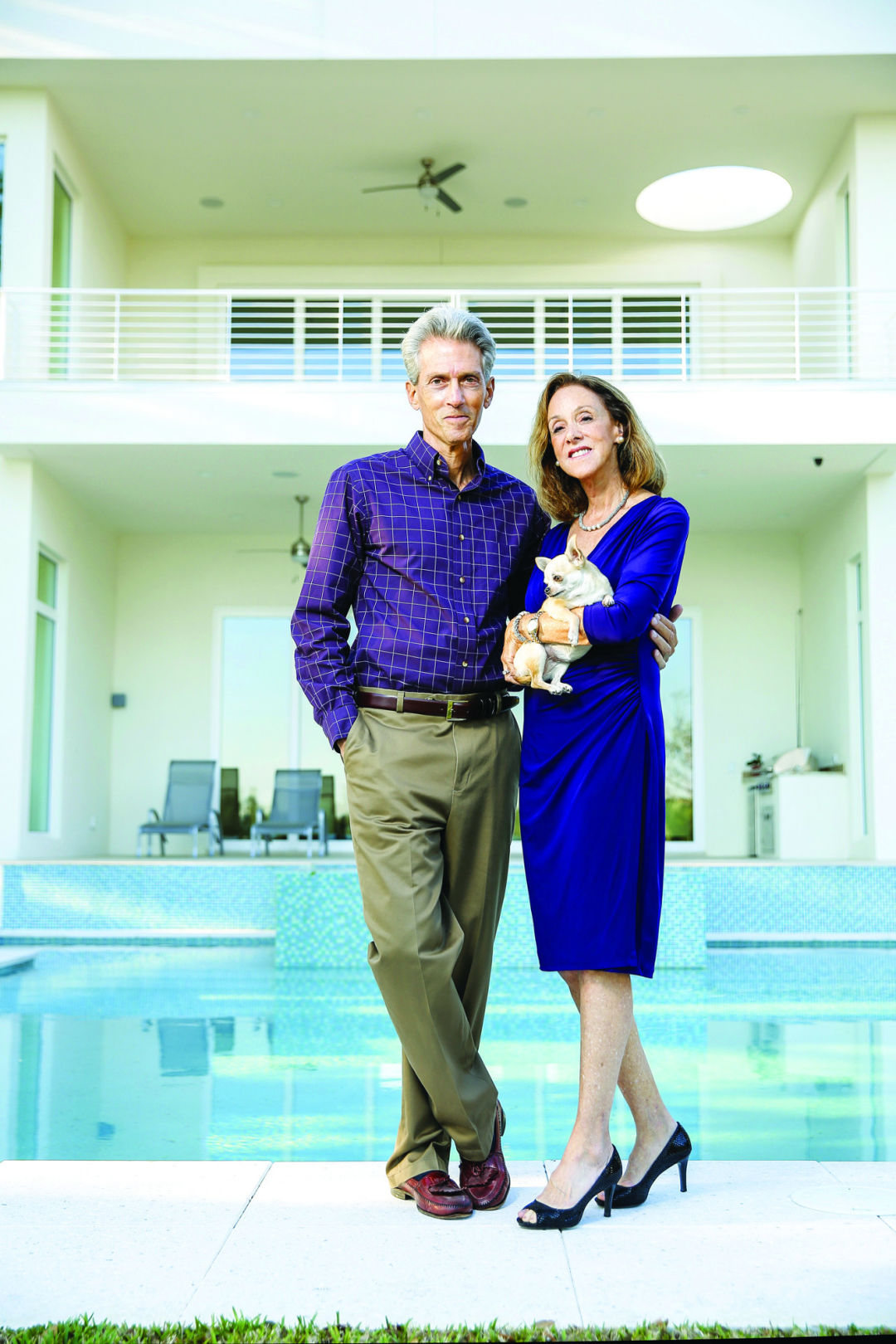 Since 2011, the Kabinoffs have bought, rented and sold nearly 200 properties throughout the region. Not many happily-ever-after Match.com stories begin with a real estate flip, but it worked for entrepreneurs Deb Knowles and Larry Kabinoff. Four years after their first date in 2011, when they left lunch on the table to go see a potential investment house, the Kabinoffs have bought, rented and sold nearly 200 properties throughout the region. Then, as housing prices went up and distressed properties to renovate and rent became scarce, they evolved into building homes. “We thought we would add them to our rental stock,” Deb says. “But we couldn’t keep any of them. We kept getting offers from people who wanted to buy them.” The couple now runs North Port-based GulfStar Homes, which builds amenity-packed houses in North Port for under $200,000. The city was a good starting point. Few developers were left after the recession, and Larry had amassed hundreds of lots over the years, paying as low as $4,000 a lot. GulfStar is now breaking ground on a new house every week, double the pace of 2015, and is moving into Port Charlotte. GulfStar takes a different approach from most builders; instead of offering an array of costly options and upgrades, they build a one-price house with granite counters, porcelain tile, stainless steel appliances, landscaping and a sprinkler and security system, all for one price. “It’s turnkey,” says Larry. “We give new home buyers everything they want in a home for one low value price.” With about $4.1 million in sales in 2015, GulfStar Homes is on a trajectory to be another successful business for two serial entrepreneurs who individually have built and sold several multimillion-dollar companies. Deb, who has an M.B.A. from Cornell with a specialty in operations management, started Corporate Health Strategies in 1982 shortly after graduating. The company analyzed medical treatment protocols for corporations and insurers. It fetched millions of dollars when Deb, only 30 years old, later sold it to MetLife. A non-compete clause in the sales contract kept her out of the industry for two years and she spent the time as a consultant for Ernst & Young. “Then I was out the door,” Deb says, and on to starting another business, nearly identical to the one she sold. She sold that company 10 years later to a conglomerate and moved to Florida to retire at the age of 42. She helped her nephew start a digital marketing company in Sarasota in 2003, and dabbled in real estate, accumulating rental properties that she managed herself. She also volunteered for area nonprofits. “I wasn’t very good at retiring,” she says. Larry became an optometrist in Philadelphia in the mid-1970s, not because he wanted to give eye exams, but because he decided it would be profitable to develop eye care centers. He already had become an adept builder after spending his childhood summers and winters fixing up bungalows in the Catskills, where his family owned a colony of vacation homes. Over the next decade, he developed Philadelphia Vision Center, a chain of eye care clinics that specialized in designer frames. “Giving eye exams was so boring,” Kabinoff says. “Finding the right locations and designing the stores are what I enjoyed.” He started selling off the stores in the late 1980s when changes in the medical industry resulted in lower reimbursement rates, making the eye clinics less profitable. His next franchise idea came during a business trip to Los Angeles in the late 1990s. On famous Rodeo Drive he spotted a juice bar with long lines around the block. After visiting about 100 juice bars throughout California, he returned east with what he considered to be the best ideas and started Amazon Juice. “It was such a new concept that I had problems getting supplies,” Larry says, adding that he would regularly commission a tractor trailer filled with 45,000 pounds of frozen strawberries from California because he couldn’t get the fruit anywhere else. After selling 50 franchises and deciding he did not care for the industry, Larry sold out his interest in 1999 and moved to Miami to invest in real estate. He bought a home in Venice in 2003 and eventually decided to relocate to the west coast. Since he paid mostly cash for property, he did not feel pressured to sell when the real estate market collapsed in 2008. Larry took advantage of foreclosures during the downturn, fixing them up and renting them. Deb followed a similar strategy, so by the time she spotted him on Match.com—her first time on the site—each had an inventory of property. There was a spark between them immediately as they dined at Libby’s in Southside Village. And then they started talking real estate. Deb mentioned that a house nearby had just come on the market. Larry replied, “Let’s go see it.” They left half their lunches on the table to see the house and, soon after, put a joint offer on the short-sale property and became partners. Their love grew along with their inventory of homes, which included some of the “ugliest properties on the market” with collapsed decks and sunken pools. “Our motto was ‘the worse the better,’” Deb says. “We never had a loser.” It may have been love at first sight, but Deb says marriage was “tax deferred.” Businesspeople through and through, they waited to tie the knot until it made sense financially. “I proposed in the tax attorney’s office,” Larry recalls. “[The attorney] told us, ‘It makes sense to get married now.’ So I turned to Deb and asked, ‘Will you marry me?’” “I’ll have to talk to my accountant first,” Deb says she replied. The couple says they bring different strengths to their partnership. Larry is the visionary with a background in building; Deb, an M.B.A. and financial wizard, is slow and steady. “He’ll say, ‘Wouldn’t it look great to have a water wall here?’” Deb says. “And I’ll say, ‘We’re getting one of those plug-in fountains from Home Depot.’” Their focus on constructing new houses instead of rehabbing old ones came in 2013 as housing prices started to rise. Larry decided it wouldn’t cost much more to build a new home, and he already owned dozens of scattered lots in North Port. “The plan was to build a perfect house for us to own as a rental,” and build lots of them, Deb says. They built one model, the Orion, a 1,437-square-foot, three-bedroom, two-bath house. It has an open floor plan with white European-style kitchen cabinets, Moen faucets and stainless steel appliances with a five-year extended warranty. The master bedroom has a walk-in closet with an organizer; the lanai is 170 square feet; and the yard is landscaped with trees, bushes and sod. After finding out what features would lower insurance costs, they added impact-resistant windows and an alarm. Larry recently decided to upgrade the baseboards in the houses from 3¼ inch to 5¼ inch after calculating that it would only add $160 to the cost of a house to give it a more luxurious look. 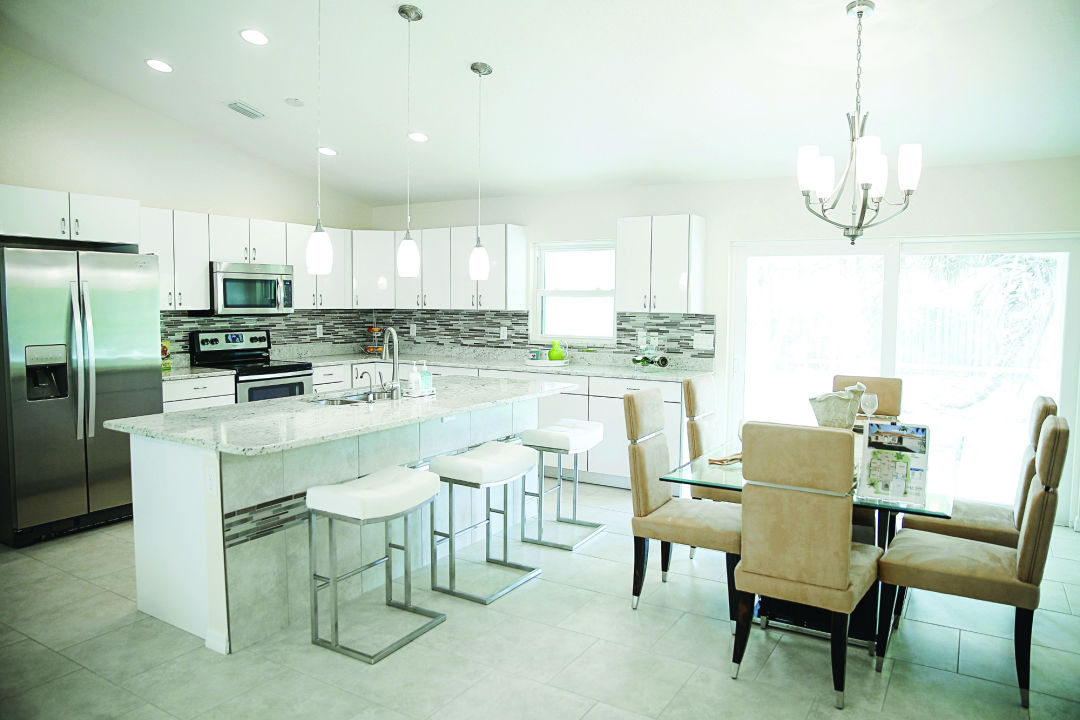 GulfStar’s $171,000 Orion model has an open floor plan with a white European-style kitchen. The house sells for $171,000, period. A year-and-a-half after launching GulfStar, the Kabinoffs have hired a salesperson and a construction manager and have expanded their offerings from one model to five, adding more colors and cabinet choices, but still the same one-price philosophy. Their homes are attracting retired police officers from the Midwest and Northeast and other retired middle-class buyers. Young working families are buying them, too. “They are all end users who are moving into the houses,” Larry says. The Kabinoffs plan to hire more employees to double production. “I want to set up the business so I can spend more time on the creative end,” Larry says. In their off time, the Kabinoffs hike, bike and kayak in Sarasota and in Colorado, where they own a second home. But work is never far from their minds. “We’ll be looking at a sunset and Larry will say, ‘We should use that color in our palette,’” Deb says. |
